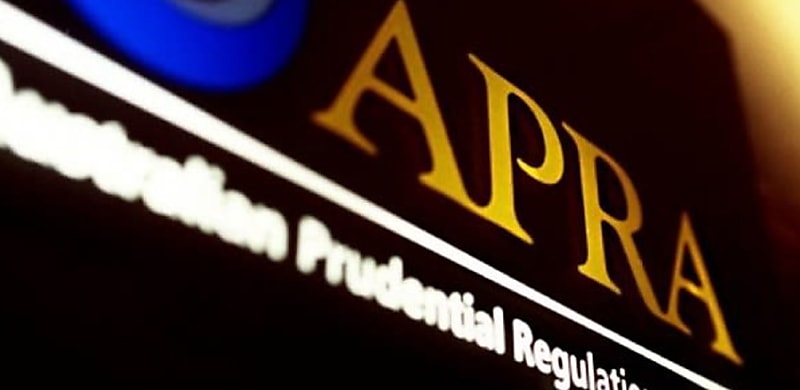
The boards of some mutuals lack the skills to navigate a modern banking environment, the prudential regulator has warned.
A raft of risks facing the mutual banking sector have been raised by Australian Prudential Regulation Authority’s (APRA) executive board member for banking, Therese McCarthy Hockey, during the Customer Owned Banking Association’s (COBA) CEO and Directors Forum on Friday (14 March).
While noting that the customer-owned banking sector has grown in size and market share in recent years (from less than 3 per cent in 2015 to around 5 per cent today), she flagged that the lenders needed to continue to reduce strategic risks amid rising competition, the cost of new tech, changing customer behaviours and the “war for talent”.
A rapidly changing financial system that includes growing competition means “banks that fail to evolve” could find themselves struggling, according to Hockey.
She revealed that APRA had observed that the boards of some mutuals “lack the necessary skills to guide their banks in a modern banking environment, in particular, technology skills”.
To combat this, the banking specialist said mutuals needed to focus on upskilling directors and bringing in “fresh talent”, potentially looking “beyond [the] bank’s traditional geographic or industry-based pool”.
Moreover, she added: “Should boards be ill-prepared to handle a crisis, they risk APRA needing to step in and take over to protect depositors and financial stability. When this happens, boards lose control of some of the key considerations around the future of their bank, their employees and their customers. That includes the possibility of ending up in a merger that doesn’t reflect their preferred values, culture or member priorities.”
Hockey also noted that mutual banks may also lose out due to the lengthy tenure of board members.
“Long tenure begins to raise questions about the ongoing ability of directors to exercise impartial judgement, challenge management effectively and be open to new ideas,” she said.
“Of course, mutual banks aren’t the only financial services companies looking to ensure they attract the best directors, with the pool of suitably qualified candidates being in high demand.
“But getting the appointments right at the top of the organisation will give mutuals the best chance of charting a bold strategy for the future and, as a result, attract the best team to enact it.”
‘War for talent’
In the speech, Hockey said that the ability to identify, recruit and retain the right personnel – in the short and long term – was a recurring theme across mutual lenders as they fight to compete in the “war for talent”.
Hockey stated that APRA has seen “the pitfalls of poor governance with almost 80 per cent of APRA-regulated entities subject to heightened risk-based supervision having underlying governance problems”.
She added that the regulator was working to ensure its standards keep pace with contemporary practice, but it was “mindful of burden”.
APRA is reportedly working to streamline and clarify its expectations for senior executives on how they support boards and give them more confidence about what APRA requirements they can delegate – and what they ought to expect of senior management.
Hockey also warned mutual lenders that the rise of private credit and fintechs meant the sector would need to innovate to compete.
“The qualities that have underpinned customer-owned banks’ success are being challenged by changes to the way Australians interact with financial services and advances in technology.
“While competition from new financial system players, such as non-bank lenders, fintech giants and cryptocurrencies, is impacting all banks, the way mutuals approach these challenges needs to be different by virtue of the tools available to you. Failing to identify this strategic risk and adapt the business accordingly could leave mutual banks unable to attract the next generation of customers you need to keep your institutions sustainable,” she said.
“Regardless of which path mutuals choose, a rapidly evolving financial system where non-traditional players such as private credit and fintechs are moving towards the mainstream means banks that fail to evolve could find themselves struggling to stay relevant.”
Mergers in focus
Hockey stressed that scaling was crucial and reiterated APRA’s belief that mergers could be a possible solution to access advanced technologies and specialised expertise that would “otherwise be prohibitively expensive or too complex to develop internally”.
The mutual sector has been merging rapidly in the past five years, with two having completed in the past year and another three in progress.
Echoing APRA’s comments in 2020, she said APRA believes there is scope for mutual banks to explore the possibilities of pooling resources or expertise.
“The stark reality of investing in and developing new technology to attract a younger and more digitally enabled customer base is that it comes with a high upfront cost,” Hockey said.
Mergers could generate operating dividends to reinvest into the business in support of customers, she added, highlighting that the lower profitability of mutuals leaves them “particularly vulnerable to a sudden shock”.
Added to that is the increased risk of fraud and higher costs associated with protecting against cyber attacks.
Mutuals needed to invest in this area, Hockey argued, with strong cyber security systems required to tackle the heightened risks.
“It would only take one severe cyber incident to put many mutual banks in a financial position that would be very difficult to recover from,” she said.
The APRA executive concluded: “The message I want to leave you with today is that while many of you have these in place and are set up for future success, others have work to do.
“Whatever your preferred strategy for long-term sustainability, it cannot be complacency.
“The customer-owned banking model may have prospered in Australia for more than a century and a half, but not every mutual has lasted the distance.
“So, no matter how confident you are that your bank and its customers are protected today, make sure you also reflect deeply on whether you are prepared for tomorrow.”
[Related: Mutual mania: The great wave of mergers continues]

